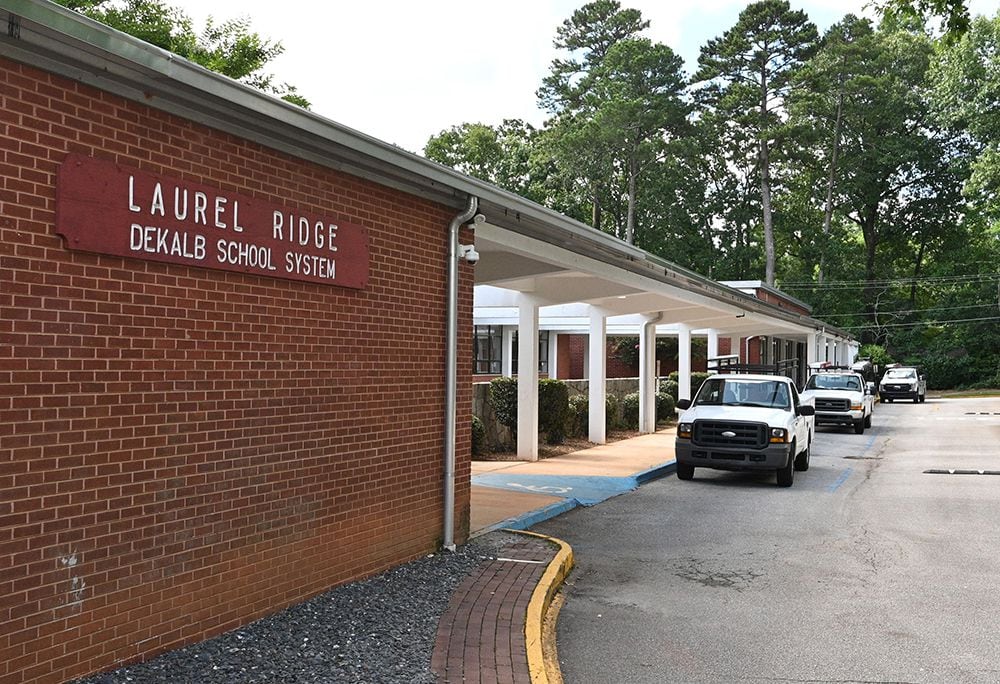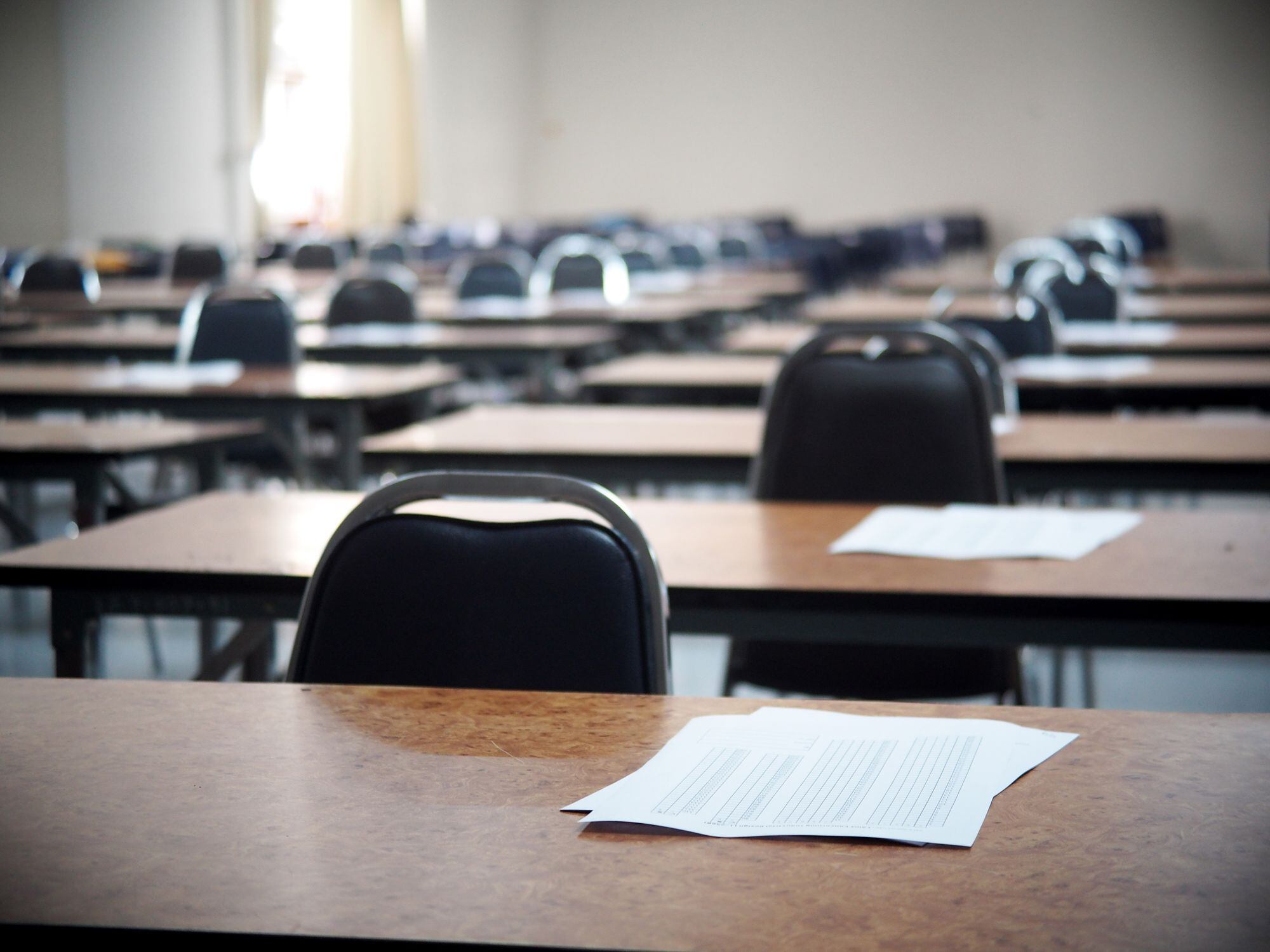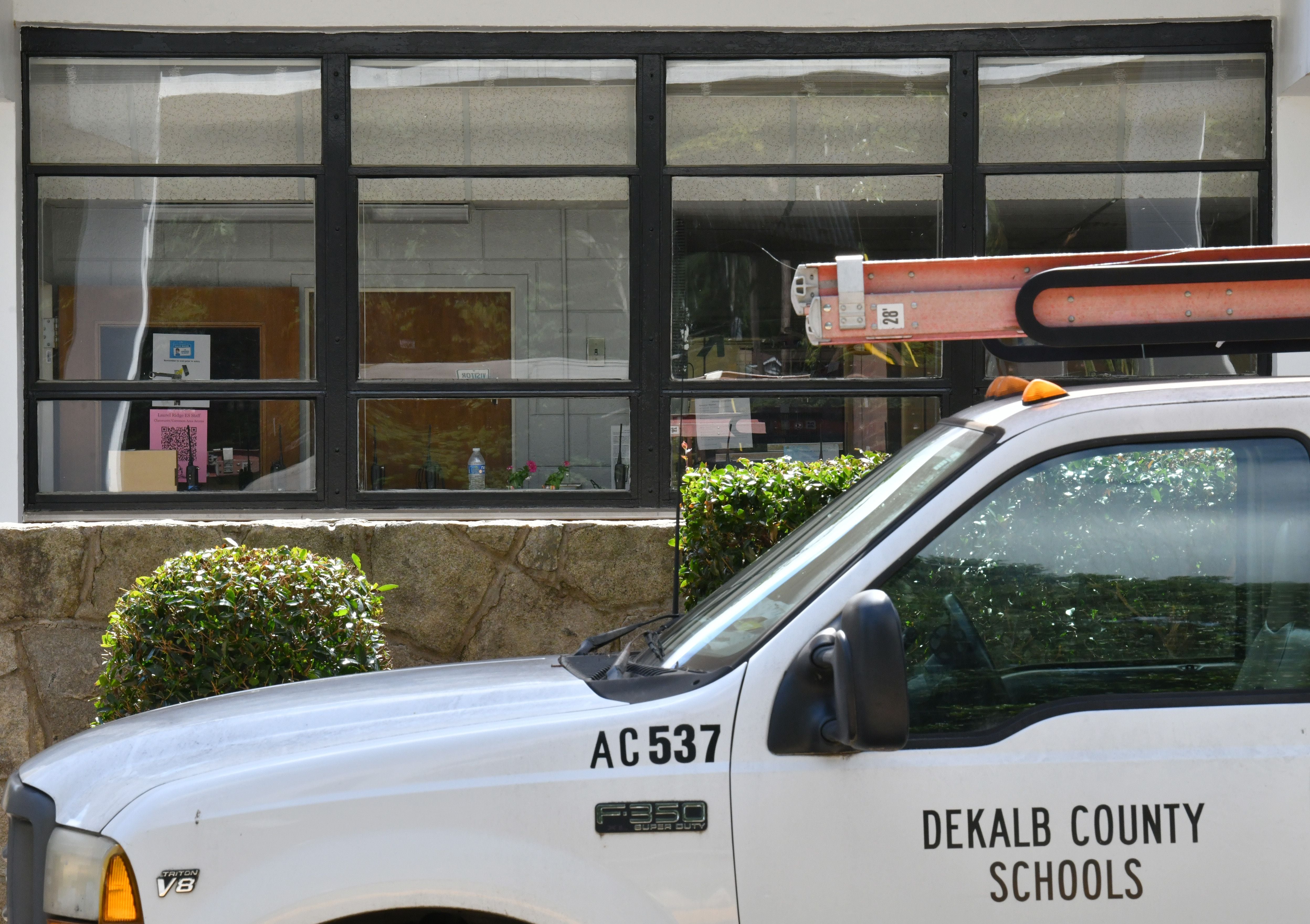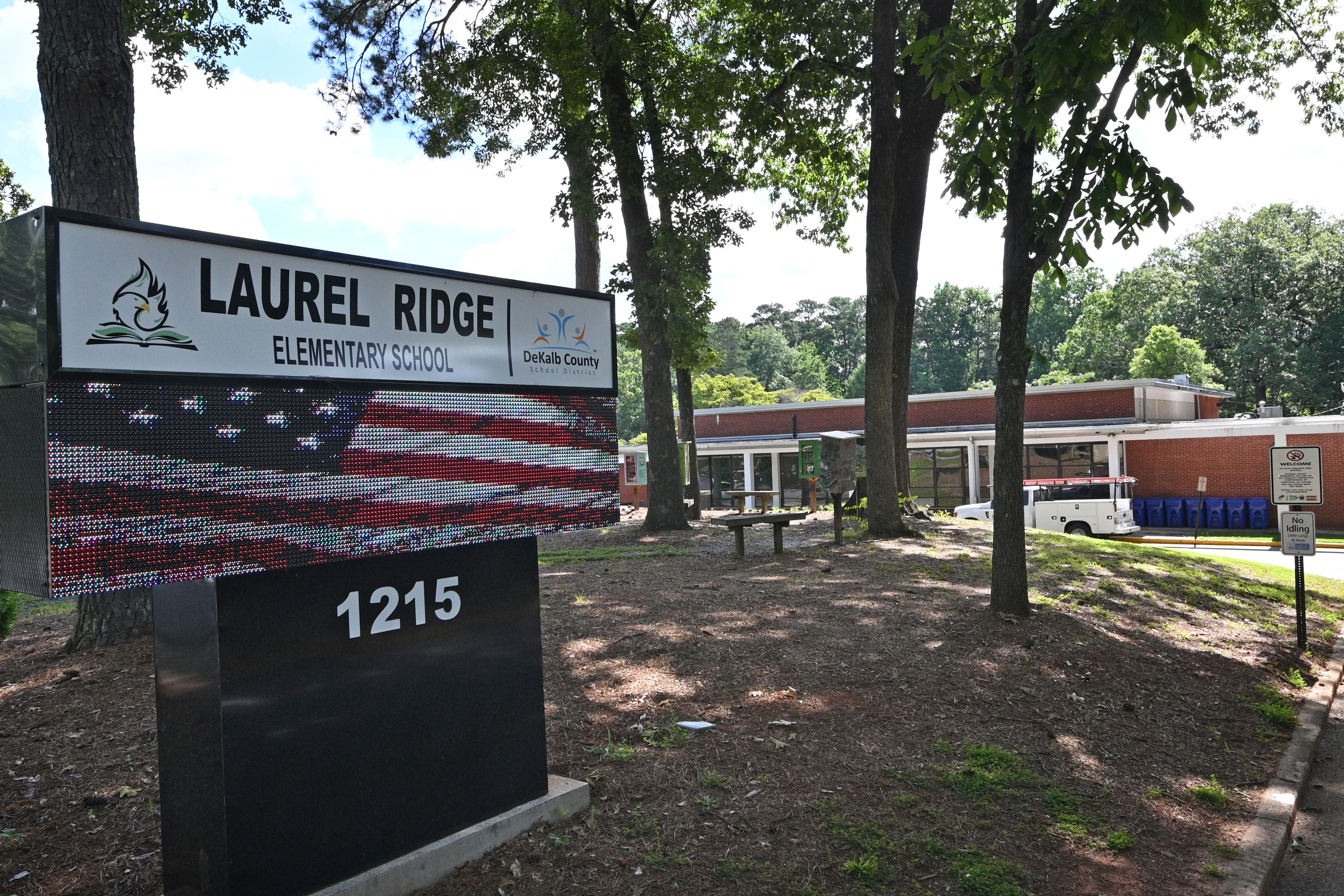Why some DeKalb school improvements take so long

It’s been almost three years since parents at Laurel Ridge Elementary in Decatur grew concerned about lead paint in the school’s windows.
The tainted paint was sealed off as an intermediate measure, but the windows still haven’t been completely replaced. It’s expected to be another six months before the repairs are done.
That timeline isn’t uncommon for big capital projects like replacing windows or roofs or installing new heating and air conditioning systems, said Erick Hofstetter, the DeKalb school district’s new chief operating officer.
“It’s about a three-year process for a project,” he said.
The pandemic, the procedures the district must follow and, at times, just bad luck can all delay work that a community is waiting for.
Improvements to school facilities have been an issue in DeKalb, after poor conditions at Druid Hills High School caught the attention of state leaders in 2022. It’s been a focus for interim Superintendent Vasanne Tinsley since she was hired in April.
The project at Laurel Ridge Elementary, which includes other updates like an HVAC and roof replacement, is one of 30 that are currently behind schedule in DeKalb, according to the district’s most recent status report on sales tax-funded construction projects. The entire project is projected to cost $9.3 million.
At a school board meeting in December, parents from Laurel Ridge Elementary asked for help not for the windows, but with the school’s roof, describing buckets under leaks in classrooms.
“Respectfully, no one understands our frustration,” said Maria Davila, the school’s PTA president.
The window saga exemplifies all the different ways improvements at a school can be slowed down.
Voters in DeKalb have consistently approved a one-cent sales tax that has funneled hundreds of millions of dollars into infrastructure projects since 1997. But money can’t overcome problems like the COVID-19 pandemic, the changing labor market and scheduling challenges, Hofstetter explained — all of which, he said, are not exclusive to DeKalb.
“We’re trying to do right for you and your children because we want them to have the best experience,” he said. “Period.”
The district’s operations staff meets weekly now with Tinsley and other leaders to evaluate schools’ needs, Hofstetter said. They conduct frequent walkthroughs at schools and change plans for upgrades when necessary. They’re working on how to better communicate with school communities when things change.
Here are some of the factors that can slow down the work.

Outside factors
Much of the planning and labor for projects like replacing entire buildings or roofs or HVAC systems is outsourced. That market has been strained by the pandemic, leading to supply chain problems and labor shortages.
Sometimes, materials come in that must be sent back. Sometimes, new laws or building codes go into effect that change things.
In the case of Laurel Ridge Elementary, the original contractor for the window replacement was fired 10 months after it was hired because of a repeated failure to perform the work in a timely manner or supply adequate labor for the work.
The procurement process
The processes to find an architect or a general contractor are lengthy, per district policy and state law. The district must seek proposals for about a month. Sometimes, a committee is called to evaluate the bids and select someone to hire. The school board must approve the hire, but it only meets once a month. After the board’s vote, it usually takes about a month to get paperwork in line before the contractor is approved to begin the work.
The first contractor for the Laurel Ridge window replacement was let go in February 2022. The second was approved four months later, in June.

Changing needs
Years can pass from when a project is initiated to when it’s completed. In that time, new needs are often identified at the school. Sometimes, those needs are more urgent or just as urgent as the project that was originally planned.
“You plan years in advance of when you get there,” said Hans Williams, the district’s director of planning. “Laurel Ridge is a great example — it’s very likely that more things have been identified or things have changed in general.”
At Laurel Ridge Elementary, the window replacement was added to an existing project to replace the HVAC system. More recently, the project was expanded to include the addition of a security vestibule, a fire sprinkler system and a roof replacement.
Scheduling
Once everything finally comes together — the supplies are in, the contractor is ready, everything has the green light — sometimes, there’s still a delay related to scheduling.
Historically, the district tries to plan major projects during the summer or breaks when students are not in session. Projects could get delayed months or pushed back years at a time. Sometimes, students are temporarily moved to another facility or portable classrooms are brought in. But keeping students in their permanent classrooms had been a goal.
“First and foremost, our main priority is minimize (as much) disruption to a school as possible,” Hofstetter said.
At Laurel Ridge, students can’t be in a classroom while windows are being replaced. District officials expect the work on the windows to be done by the summer. All of the work at the school — including the replacement of the HVAC system — is projected to be finished in July 2024, according to the most recent status report.

The school board
The DeKalb County Board of Education must approve major projects at several steps along the way. Sometimes, board members have reservations or questions that can slow down a project.
Currently, the district is collecting money from the most recently approved penny sales tax, but the school board hasn’t agreed yet on how to spend that money. It was asked to approve an initial project list in August, but decided to postpone the vote. It was not on the board’s meeting agenda for January.
Additionally, the district unveiled a comprehensive master plan in early 2022 — essentially, a road map for all of the major projects the district would undertake over 10 years. But board members voted to focus on the district’s highest-priority needs across many schools rather than fewer major projects.
The district has yet to explain how that decision affects its plans for the future. Still, work continues.
“We have hundreds of millions of dollars in projects that the board has already approved,” Williams said. “There isn’t a complete stymieing of progress.”
-
February 2020
Parents at Laurel Ridge Elementary grew suspicious about the possibility of lead paint in the windows. They collected and tested paint chips, which were positive for lead.

-
March 2020
COVID-19 pandemic prompted shutdown of schools. Lead paint is enclosed per environmental guidelines to protect students and staff.

-
October 2020
District begins seeking contractor for window replacement.

-
January 2021
School board approved a contractor. Work already approved for replacement of heating, ventilation and air conditioning system. Total project cost is $8.3 million.

-
July 2021
District stated the project is taking time because of delays in obtaining the materials, and because each of the 93 windows is custom-sized.
-
February 2022
Contractor had partially completed windows in two classrooms and the media center. Contract was terminated for repeated failures.
-
June 2022
School board approved a second contractor.

-
September 2022
Roof replacement, security vestibule addition and fire sprinkler system installation added to project scope. Project budget now at $9.3 million.

-
August 2023
District officials hope the window replacement will be completed this summer.
-
July 2024
All improvements are projected to be complete.



